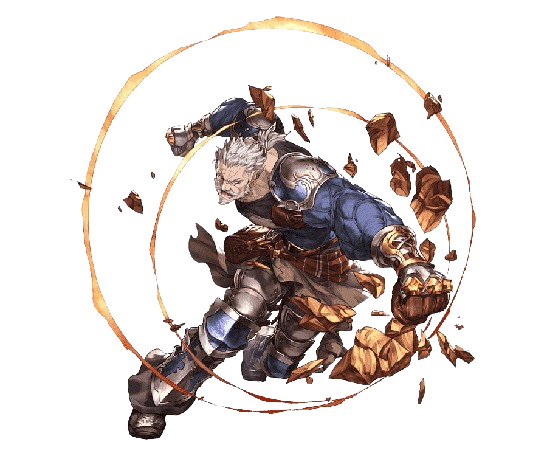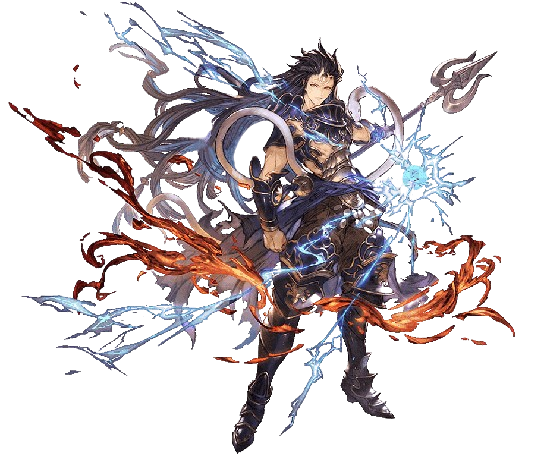Introduction
Fantasy games have become a cornerstone of modern entertainment, captivating players with rich, immersive worlds where anything is possible. However, beyond their surface appeal of magic, dragons, and epic quests, these games play a profound role in fostering essential life skills, particularly teamwork and strategy. Whether played as video games, tabletop role-playing games (RPGs), or even live-action role-playing (LARP), fantasy games challenge players to collaborate, strategize, and solve complex problems. Fantasy game development companies and agencies are constantly innovating to create engaging platforms that require players to master these skills. This article will explore how these games nurture teamwork and strategic thinking, essential not only in the virtual realm but also in the real world.
Boost Your Fantasy Game Efficiency

The Basics of Teamwork and Strategy in Fantasy Games
Before diving into specific examples, it’s important to understand how teamwork and strategy are foundational elements in many fantasy games. In essence, teamwork involves working together toward a common goal, leveraging the strengths of each team member. Strategy, on the other hand, entails long-term planning and decision-making to overcome obstacles or achieve objectives. Fantasy game development services frequently incorporate these elements to engage players and enhance the gaming experience.
Team Dynamics and Roles
Fantasy games, especially those with multiplayer modes, frequently require players to assume different roles within a team. These roles are often interdependent, meaning success is contingent upon effective collaboration. For instance, in a game like World of Warcraft or Dungeons & Dragons, a typical team might consist of a tank (defensive role), a healer (support role), and damage dealers (offensive role). Each player must perform their role well and communicate with their teammates to succeed. This diverse team dynamic is often emphasized by fantasy game development companies, who design games where collaboration is critical.
Such role diversity highlights a fundamental principle of teamwork: that individuals contribute different strengths and must cooperate effectively to overcome challenges. As in real-world scenarios, team members in fantasy games learn to rely on each other, trusting their teammates’ skills while fulfilling their own responsibilities.
Strategic Thinking and Planning
Strategy in fantasy games often begins long before the actual gameplay starts. Players frequently spend time analyzing their characters’ abilities, potential team compositions, and even enemy strengths and weaknesses. For example, in games like League of Legends or Magic: The Gathering, choosing the right combination of characters or cards to form a team or deck is essential for success. Fantasy game developers build these strategic elements into the gameplay, encouraging players to think ahead. This aspect of strategic thinking teaches players to evaluate options, make informed decisions, and anticipate future outcomes.
Once the game begins, strategy becomes dynamic, requiring players to adapt to changing circumstances. Flexibility in strategy is often the difference between victory and defeat. Whether it’s adjusting tactics mid-battle in World of Warcraft or changing formations during a LARP session, fantasy game development agencies offer a rich environment for testing and refining strategic thinking.

The Role of Communication in Teamwork
One of the most critical aspects of teamwork in fantasy games is communication. Whether verbal or non-verbal, communication allows team members to synchronize their efforts, share information, and adjust their strategies on the fly.
In-Game Communication
In multiplayer fantasy games like Final Fantasy XIV, players often use text or voice chat to coordinate during complex battles or dungeon raids. They might call out incoming threats, request healing, or suggest tactical shifts. This real-time communication is not just about relaying information but also about fostering a sense of camaraderie and shared purpose.
Good communication also involves active listening. In a fast-paced environment, players must be able to absorb instructions or updates from teammates quickly and accurately. Miscommunication can lead to disastrous outcomes, teaching players the importance of clarity and precision in teamwork, a quality game development services often focus on while enhancing cooperative gameplay mechanics.
Problem-Solving as a Group
Fantasy games often present players with complex puzzles or challenges that require collaborative problem-solving. In a game like Divinity: Original Sin 2, for example, players might face a riddle that only a combination of their collective knowledge and skills can solve. This forces team members to share ideas, experiment with different solutions, and, most importantly, work together.
This aspect of teamwork nurtures problem-solving abilities and demonstrates the power of collaboration. Just as in real-life teams, fantasy games show that multiple minds working together are often more effective than a single individual trying to solve a problem alone. Fantasy game development agencies often emphasize this collaborative problem-solving in their game mechanics.
Jump Into Action: Start Fantasy Game Project

Trust and Dependability in Fantasy Games
Teamwork is fundamentally built on trust. Players must trust their teammates to perform their roles and make the right decisions, especially in high-pressure situations. Fantasy games offer ample opportunities to build and test this trust.
Trusting Your Team
In games like Overwatch or Dungeons & Dragons, each player’s role is crucial. For instance, in a dungeon raid, if the healer fails to restore health at a critical moment, the entire team could be wiped out. Conversely, if the damage dealer strays from the plan, the team’s strategy might crumble. These situations create an environment where players must depend on each other’s skills and judgment, something that fantasy game development companies incorporate into team-based gameplay.
Trust in fantasy games also extends to leadership. Often, a team will have a designated leader or strategist who calls the shots. Other players must trust that the leader’s decisions are sound and that following their directions will lead to success. This builds a strong sense of unity and reliance, which can translate into real-world trust-building experiences.
Handling Failure and Learning from Mistakes
Not every team in a fantasy game will succeed on the first try. In fact, failure is a common part of the experience. However, it’s how teams respond to failure that shapes their ability to grow and improve. After a failed mission or battle, players often regroup, discuss what went wrong, and adjust their strategies. Fantasy game development companies understand that the process of trial and error makes the game more engaging, while also fostering resilience and problem-solving skills.
In real-world teams, setbacks are inevitable. Fantasy games teach players to handle these setbacks gracefully, using them as learning opportunities rather than sources of frustration.

Strategic Depth: Long-Term Planning vs. Short-Term Tactics
One of the key distinctions in fantasy games is the balance between long-term strategy and short-term tactics. Players must often make decisions that have immediate impacts while keeping their long-term goals in mind. This dual focus sharpens strategic thinking and enhances the ability to think several steps ahead.
Tactics: Adapting in Real Time
Tactics refer to the on-the-fly decisions players must make during gameplay. For example, in XCOM 2, players must react to an enemy ambush by repositioning their characters, using the terrain to their advantage, and prioritizing targets. These short-term decisions require quick thinking and adaptability, skills that are vital in both gaming and real-world problem-solving scenarios. Fantasy game development agencies often design these tactical elements to create engaging, fast-paced decision-making moments.
Players must also manage resources, such as health, magic points, or special abilities, ensuring that they are used effectively. Poor resource management can lead to tactical failure, demonstrating the importance of efficiency and planning in executing short-term tactics.
Strategy: The Bigger Picture
While tactics deal with immediate actions, strategy involves long-term planning. In fantasy games like Civilization VI or Total War: Warhammer, players must think several turns ahead, considering not just the current state of the game but how their decisions will affect future outcomes. Fantasy game development services ensure that these games encourage long-term thinking, allowing players to balance immediate needs with future goals. This strategic foresight mirrors real-world strategic planning in business, military operations, or project management.
Fostering Leadership Through Fantasy Games
Fantasy games also serve as training grounds for leadership development. Players often take on leadership roles within their teams, whether by design or through natural group dynamics. These experiences help hone leadership skills, including decision-making, motivation, and conflict resolution.
Leading a Team to Victory
In games like Dungeons & Dragons, the role of the Dungeon Master (DM) is inherently a leadership position. The DM must guide the players through the story, create engaging challenges, and ensure that the game runs smoothly. In multiplayer online games, leaders emerge during raids or large-scale battles, directing the team and making critical decisions in the heat of the moment. Fantasy game development companies often design systems that support leadership dynamics within teams.
Leadership in fantasy games requires balancing the needs and abilities of the team, making tough calls under pressure, and ensuring that everyone is working toward the same goal. These are the same qualities that effective leaders exhibit in business, sports, and other real-world environments.
Conflict Resolution and Team Management
As in any team-based activity, conflicts can arise within fantasy games. Players may disagree on tactics, strategy, or even individual roles. Effective team leaders must manage these conflicts, ensuring that disagreements do not derail the team’s progress. Fantasy games provide a safe environment for practicing these conflict resolution skills, which are invaluable in real-world team settings.

Conclusion
Fantasy games are not just a form of escapism or entertainment; they are powerful tools for fostering teamwork and strategy. By challenging players to collaborate, communicate, and think critically, these games help develop essential skills that can be applied both in the gaming world and in real life. Fantasy game development companies and agencies continuously innovate to create immersive games that promote these skills. Whether it’s coordinating a complex dungeon raid, solving a puzzle with a group of friends, or leading a team to victory, fantasy games offer rich experiences that teach the value of teamwork and strategic thinking.



